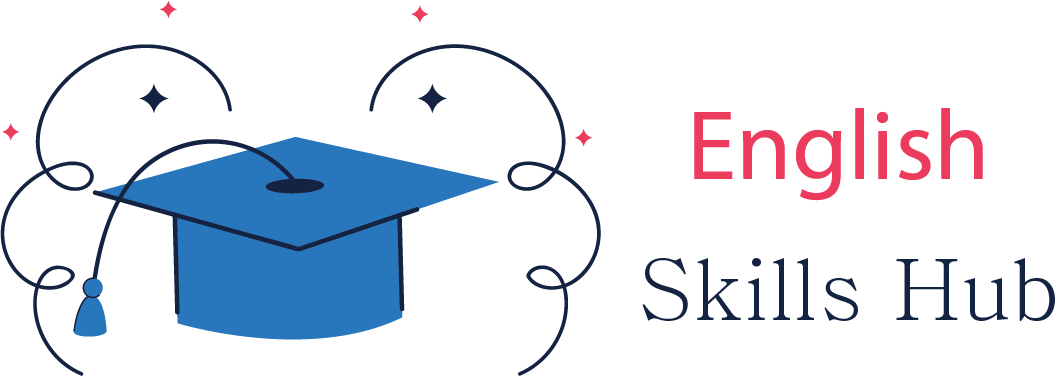This lesson is designed to help learners improve their English language skills specifically for professional settings. Whether you’re preparing for a job interview, writing emails, or participating in meetings, this lesson will equip you with the vocabulary, phrases, and communication strategies needed to succeed in the workplace.
Introduction to English for Work
Why English is Essential in the Workplace
English is the global language of business. Whether you’re working in a multinational company, communicating with international clients, or collaborating with colleagues from different countries, English is often the common language used. Strong English skills can help you:
- Communicate effectively with colleagues and clients.
- Advance in your career.
- Build professional relationships.
- Access global job opportunities.
Common Challenges for Non-Native Speakers
Non-native English speakers often face challenges in professional settings, such as:
- Difficulty understanding workplace jargon or idioms.
- Struggling to write clear and professional emails.
- Feeling nervous about speaking in meetings or presentations.
- Misunderstanding cultural nuances in communication.
What This Lesson Covers
This lesson will help you overcome these challenges by focusing on:
- Workplace vocabulary and phrases.
- Writing professional emails and reports.
- Communicating effectively in meetings and presentations.
- Handling common workplace scenarios.
Workplace Vocabulary
Key Job Titles
Understanding common job titles is essential for navigating the workplace. Here are some examples:
- Manager: Oversees a team or department.
- Intern: A temporary position for gaining experience.
- CEO (Chief Executive Officer): The highest-ranking executive in a company.
- Assistant: Provides support to a manager or team.
- HR (Human Resources): Manages employee-related matters.
Common Departments
Companies are often divided into departments, each with specific functions:
- Finance: Handles money, budgets, and financial planning.
- Marketing: Promotes products or services.
- IT (Information Technology): Manages technology and systems.
- Sales: Focuses on selling products or services.
- Operations: Oversees day-to-day business activities.
Essential Workplace Verbs
Here are some verbs frequently used in professional settings:
- Manage: To oversee or control.
- Example: She manages a team of 10 people.
- Collaborate: To work together.
- Example: We need to collaborate on this project.
- Delegate: To assign tasks to others.
- Example: He delegated the report to his assistant.
- Report: To provide information or updates.
- Example: Please report your progress by Friday.
Phrases for Daily Tasks
Here are some common phrases you might use at work:
- “Could you please send me the report?”
- “I need to schedule a meeting with the team.”
- “Let’s discuss this in more detail.”
- “Can you clarify what you mean?”
- “I’ll follow up with you later.”
Writing Professional Emails
Why Email Communication Matters
Emails are a primary form of communication in the workplace. Writing clear, professional emails is essential for:
- Conveying information effectively.
- Building a positive professional image.
- Avoiding misunderstandings.
Email Structure
A professional email typically includes the following parts:
- Subject Line: A brief summary of the email’s purpose.
- Example: “Follow-Up on Project Deadline”
- Greeting: A polite opening.
- Example: “Dear Mr. Smith,”
- Body: The main content of the email.
- Be clear and concise.
- Use paragraphs to organize information.
- Closing: A polite ending.
- Example: “Best regards,”
- Signature: Your name and contact information.
Common Email Phrases
Here are some phrases you can use in professional emails:
- Requesting Information:
- “I am writing to inquire about…”
- “Could you please provide more details on…”
- Providing Information:
- “Please find attached…”
- “I’d like to share an update on…”
- Closing the Email:
- “Looking forward to your reply.”
- “Thank you for your assistance.”
Tips for Writing Professional Emails
- Be Clear and Concise: Avoid unnecessary details.
- Use Formal Language: Avoid slang or informal expressions.
- Proofread: Check for spelling and grammar errors before sending.
- Be Polite: Use phrases like “please” and “thank you.”
Communication in Meetings
Why Meeting Communication Matters
Meetings are a key part of workplace collaboration. Effective communication in meetings helps you:
- Share ideas and opinions.
- Make decisions as a team.
- Build relationships with colleagues.
Phrases for Meetings
Here are some useful phrases for different stages of a meeting:
Opening the Meeting
- “Let’s get started.”
- “Thank you all for coming.”
- “The purpose of this meeting is to…”
Asking for Opinions
- “What are your thoughts on this?”
- “Does anyone have any suggestions?”
- “How do you feel about this idea?”
Agreeing and Disagreeing
- “I agree with that point.”
- “I see it differently.”
- “That’s a good idea, but have we considered…?”
Closing the Meeting
- “Let’s summarize the key points.”
- “What are the next steps?”
- “Thank you for your input. Let’s follow up next week.”
Tips for Effective Communication in Meetings
- Prepare in Advance: Know the agenda and your talking points.
- Speak Clearly: Use simple and concise language.
- Listen Actively: Pay attention to others and respond thoughtfully.
- Stay Professional: Avoid interrupting or dominating the conversation.
Giving Presentations
Why Presentation Skills Matter
Presentations are a common way to share information, pitch ideas, or report progress. Strong presentation skills help you:
- Communicate your message clearly.
- Engage your audience.
- Build confidence and credibility.
Presentation Structure
A well-organized presentation includes the following parts:
Introduction
- “Good morning/afternoon, everyone.”
- “Today, I’ll be talking about…”
- “The purpose of this presentation is to…”
Main Points
- “First, let’s look at…”
- “Next, I’d like to discuss…”
- “As you can see from the chart…”
Conclusion
- “To summarize…”
- “In conclusion…”
- “Thank you for your attention. Does anyone have any questions?”
Useful Phrases for Presentations
- Introducing a Topic: “Let me give you an overview of…”
- Highlighting Key Points: “The most important thing to remember is…”
- Addressing Questions: “I’d be happy to answer any questions.”
Tips for Effective Presentations
- Practice: Rehearse your presentation multiple times.
- Use Visuals: Include slides, charts, or images to support your points.
- Engage the Audience: Ask questions or encourage participation.
- Stay Calm: Take deep breaths and speak slowly.
Workplace Scenarios and Role-Playing
Why Role-Playing Matters
Role-playing helps you practice real-life workplace situations, build confidence, and improve your communication skills.
Common Workplace Scenarios
Here are some scenarios you might encounter at work:
Job Interviews
- Prepare answers to common questions:
- “Tell me about yourself.”
- “What are your strengths and weaknesses?”
- “Why do you want this job?”
Asking for a Raise
- Be polite and confident:
- “I’d like to discuss my salary.”
- “Based on my contributions, I believe I deserve a raise.”
Handling Customer Complaints
- Stay calm and professional:
- “I understand your concern.”
- “Let’s find a solution together.”
Collaborating with Colleagues
- Communicate clearly and respectfully:
- “What’s your opinion on this?”
- “Let’s work together to meet the deadline.”
Networking and Small Talk
Why Networking Matters
Networking helps you build professional relationships, learn from others, and discover new opportunities.
Small Talk Topics
Small talk is a great way to start conversations. Here are some topics:
- Work-related: “How long have you been with the company?”
- General: “How was your weekend?”
- Current Events: “Did you hear about the new project?”
Networking Phrases
- Introducing Yourself: “Hi, I’m [Name]. I work in [Department].”
- Asking Questions: “What do you do at the company?”
- Ending the Conversation: “It was nice meeting you. Let’s stay in touch.”
Tips for Networking
- Be Polite and Professional: Smile and maintain eye contact.
- Ask Open-Ended Questions: Encourage the other person to share.
- Follow Up: Send a LinkedIn connection request or email after meeting someone.
Writing Reports and Documents
Why Report Writing Matters
Reports are used to share information, analyze data, and make recommendations. Clear and professional reports help you:
- Communicate effectively.
- Demonstrate your expertise.
- Support decision-making.
Report Structure
A well-structured report includes the following parts:
Title
- Clearly state the topic of the report.
- Example: “Quarterly Sales Report: January-March 2023”
Introduction
- Explain the purpose and scope of the report.
- Example: “The purpose of this report is to analyze sales performance for Q1 2023.”
Main Body
- Present your findings, data, or analysis.
- Use headings and subheadings to organize information.
- Example: “Sales increased by 10% compared to the previous quarter.”
Conclusion
- Summarize the key points and provide recommendations.
- Example: “In conclusion, the sales team performed well. We recommend increasing the marketing budget for Q2.”
Common Phrases for Reports
- Introducing Data: “According to the data…”
- Making Recommendations: “Based on the findings, we recommend…”
- Summarizing: “To summarize, the key points are…”
Tips for Writing Reports
- Use Formal Language: Avoid slang or informal expressions.
- Be Clear and Concise: Stick to the main points.
- Proofread: Check for errors before submitting.

